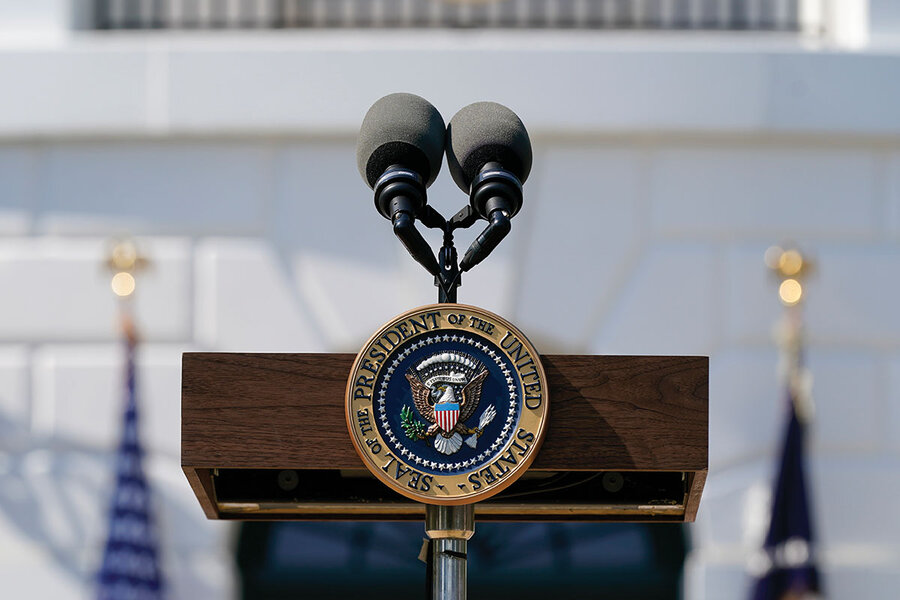The ongoing march toward a more perfect union
Loading...
Throughout history, American leaders have borrowed from the Bible in calling their nation a “city upon a hill” – a beacon of hope for humanity. A sense of exceptionalism has long infused pride in the American system and successes as the world’s oldest democracy.
That self-image took a hit with the federal indictment of Donald Trump over alleged mishandling of classified documents, making him the first former U.S. president to face federal criminal charges. The fact that Mr. Trump leads polls for the Republican presidential nomination in 2024 makes his indictment all the more consequential. The implications for the future of American governance could be profound.
Still, Americans can take heart in the lessons of other democracies, as the Monitor explained in a magazine cover story back in January. From France, Israel, and South Korea, to Argentina and Brazil, other nations have shown that former leaders can be held to account – even sent to prison – and the country survives.
No one is above the law. Some leaders, such as in Brazil, have served time in prison for corruption and then been reelected. Israel is another example: Prime Minister Benjamin Netanyahu faced indictment, was voted out, and then returned to office. His trial is ongoing.
In the United States, opinion on Mr. Trump is deeply divided, with many Americans saying the latest charges – and a previous, civil indictment in New York – are politically driven. Others feel Mr. Trump’s legal jeopardy is deserved. This week’s Explainer, by Peter Grier and Sophie Hills, looks at the latest indictment in more depth.
Whatever the outcome, Americans can eat a bit of humble pie. And in building a more perfect union, there are lessons to be learned. “In the short run, people will lose some of their trust in democracy” when former leaders are taken to court, Sam Van der Staak of the Stockholm-based International Institute for Democracy and Electoral Assistance told the Monitor in January. “In the long run, you often see that systems can be repaired step by step, and that public confidence then grows again.”






